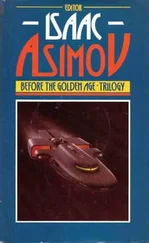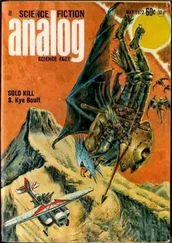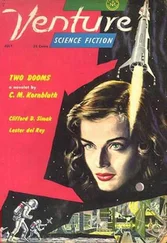Clifford Simak - Ring Around the Sun
Здесь есть возможность читать онлайн «Clifford Simak - Ring Around the Sun» весь текст электронной книги совершенно бесплатно (целиком полную версию без сокращений). В некоторых случаях можно слушать аудио, скачать через торрент в формате fb2 и присутствует краткое содержание. Жанр: Фантастика и фэнтези, на английском языке. Описание произведения, (предисловие) а так же отзывы посетителей доступны на портале библиотеки ЛибКат.
- Название:Ring Around the Sun
- Автор:
- Жанр:
- Год:неизвестен
- ISBN:нет данных
- Рейтинг книги:5 / 5. Голосов: 1
-
Избранное:Добавить в избранное
- Отзывы:
-
Ваша оценка:
- 100
- 1
- 2
- 3
- 4
- 5
Ring Around the Sun: краткое содержание, описание и аннотация
Предлагаем к чтению аннотацию, описание, краткое содержание или предисловие (зависит от того, что написал сам автор книги «Ring Around the Sun»). Если вы не нашли необходимую информацию о книге — напишите в комментариях, мы постараемся отыскать её.
Ring Around the Sun — читать онлайн бесплатно полную книгу (весь текст) целиком
Ниже представлен текст книги, разбитый по страницам. Система сохранения места последней прочитанной страницы, позволяет с удобством читать онлайн бесплатно книгу «Ring Around the Sun», без необходимости каждый раз заново искать на чём Вы остановились. Поставьте закладку, и сможете в любой момент перейти на страницу, на которой закончили чтение.
Интервал:
Закладка:
"But they died, Hezekiah. Their bodies…
"Android bodies, sir. We must keep the records straight. Otherwise the normal ones would suspect."
The room was bright and cold and naked with the monstrous nakedness of truth.
Suspended animation, His mother and his father waited, in suspended animation, for the day they could have immortality!
And he, Jay Vickers, the real Jay Vickers, what of him? Not suspended animation, certainly, for the life was gone from the real Jay Vickers and was in this android body that sat in this room holding the family record in two android hands.
"Kathleen Preston?" Vickers asked,
Hezekiah shook his head. "I do not know about Kathleen Preston," he said.
"But you got the Preston family record."
Hezekiah shook his head again. "There is no Preston record. I searched the cross-index, sir. There is no Preston mentioned. No Preston anywhere."
CHAPTER THIRTY-NINE
HE had made a decision and now the decision was no good — made no good by the memory of two faces. He closed his eyes and remembered his mother, remembered every feature, a little idealized, perhaps, but mainly true, and he recalled how she had been horrified by his adventure into fairyland and how Pa talked to him and how the top had disappeared.
Of course the top had disappeared. Of course he had been lectured about too much imagination. After all, they probably had a hard enough time keeping an eye on him and knowing where he was without his wandering into other worlds. An eight-year-old would be hard enough to keep track of on one world, let alone a hundred.
The memory of his mother's face and of his father's hand upon his shoulder, with the fingers of the hand digging into his flesh with a manly tenderness — these were things a man could not turn his back upon.
In utter faith they waited, knowing that when the blackness came upon them it would not be the end, but the beginning of an even greater adventure in living than they had even hoped when they banded themselves with the little group of mutants so many years before.
If they held such faith in the mutant plan, could his be any less?
Could he refuse to do his part toward the establishment of that world for which they had done so much?
They themselves had given what they could; the labor they had expended, the faith they had lavished must now be brought to realization by the ones they had left behind. And he was one of those — and he knew he could not fail them.
What kind of world, he wondered.
Suppose the mutant listeners finally were able to track down the secret of immortality, what kind of world would you have then?
Suppose it really came to pass that Man never need to die, but could live forever and forever?
It would not be the same world then. It would be a different world, with different values and incentives.
What factors would be necessary to make an immortal world keep going? What incentives and conditions to keep it from running down? What opportunity and interest, continually expanding, to save it from the dead-end street of boredom?
What would you need in an immortal world?
Endless economic living room, for one thing; and there would be endless economic living room. For now all the following and preceding worlds lay open. And if that were not enough, there would be the universe, with all its suns and solar systems, for if one earth of a single planet had following and preceding earths, then so must every star and planet in the entire universe be repeated endlessly.
Take the universe and multiply it by an unknown number — take all the worlds there were in all the universe and multiply them by infinity and you would have the answer. There would be room enough, room enough forever.
You would need endless opportunity and endless challenge and in those worlds would lie opportunity and challenge that even eternal Man could not exhaust.
But that would not be the end of it: there would be endless time as well as endless space, and in that time would arise new techniques and new sciences, new philosophies, so that eternal Man need never lack for tasks to do or thoughts to think.
And, once you had immortality, what did you use it for?
You used it to keep up your strength. Even if your tribe were small, even if the birthrate were not large, even if new members of the tribe were discovered but infrequentIy, you still would be sure of growth if no one ever died.
You used it to conserve ability and knowledge. If no one ever died, you could count on the ultimate strength and knowledge and ability of each member of the tribe. When a man died, his ability died with him, and to some extent, his knowledge. But it wasn't only that. You lost not only his present ability and knowledge, but all his future ability and knowledge.
What knowledge, Vickers wondered, did the Earth now lack because a certain man died a dozen years too soon? Some of the knowledge, of course, would be recovered through the later work of other men, but certainly there was much that could never be recovered, ideas that would not be dreamed again, concepts that were blotted out forever by the death of a man within whose brain the first faint stirring of their development had just begun to ferment.
Within an immortal society, such a thing could never happen. An immortal society would be certain of total ability and total knowledge of its manpower.
Take the ability to tap the knowledge of the stars, take the business of inherent memory, take the technical knowledge that made everlasting merchandise — and add immortality.
That was the formula — of what? Of the ultimate in life? Of the pinnacle of intellect? Of godhood itself?
Go back a hundred thousand years. Consider the creature, Man. Give him fire, the wheel, the bow and arrow, domesticated animals and plants, plus tribal organization and the first, faint dawning concept of Man as the lord of Earth. Take that formula and what did you have?
The beginning of civilization, the foundation of a human culture. That was what you had.
And in its way the formula of fire and wheel and domestic animals was as great as the formula of immortality and time sense and inherent memory.
The formula of the mutants, he knew, was simply another step upward as the fire-wheel-dog formula of a hundred thousand years before had been an earlier forward step.
The mutant formula was not the end result of human effort nor of human intellect and knowledge; it was but a step. There was yet another step. In the future there was still another step. Within the human mind still dwelled the possibility of even greater steps, but what the concepts of those steps might be was as inconceivable to him, Jay Vickers, as the time structure of the following worlds would have been to the man who discovered fire or tamed the dog.
We still are savages, he thought. We still crouch within our cave, staring out beyond the smoky fire that guards the entrance of our cave against the illimitable darkness that lies upon the world.
Some day we'll plumb that darkness, but not yet.
Immortality would be a tool that might help us, and that is all it is. A simple, ordinary tool.
What was the darkness out beyond the cave's mouth?
Man's ignorance of what he was or why he was or how he came to be and what his purpose and his end. The old, eternal question.
Perhaps with the tool of immortality Man could track down these questions, could gain an understanding of the orderly progression and the terrible logic which fashioned and moved the universe of matter and of energy.
The next step might be a spiritual one, the finding and understanding of a divine pattern that was law unto the entire universe. Might Man find at last, in all humility, a universal God — the Deity that men now worshipped with the faintness of human understanding and the strength of human faith? Would Man find at last the concept of divinity that would fill, without question and without quibble, Man's terrible need of faith, so clear and unmistakable that there could be no question and no doubt, as there now was question and doubt; a concept of goodness and of love with which Man could so identify himself that there would then be no need of faith, but faith replaced with knowing and an everlasting sureness?
Читать дальшеИнтервал:
Закладка:
Похожие книги на «Ring Around the Sun»
Представляем Вашему вниманию похожие книги на «Ring Around the Sun» списком для выбора. Мы отобрали схожую по названию и смыслу литературу в надежде предоставить читателям больше вариантов отыскать новые, интересные, ещё непрочитанные произведения.
Обсуждение, отзывы о книге «Ring Around the Sun» и просто собственные мнения читателей. Оставьте ваши комментарии, напишите, что Вы думаете о произведении, его смысле или главных героях. Укажите что конкретно понравилось, а что нет, и почему Вы так считаете.









